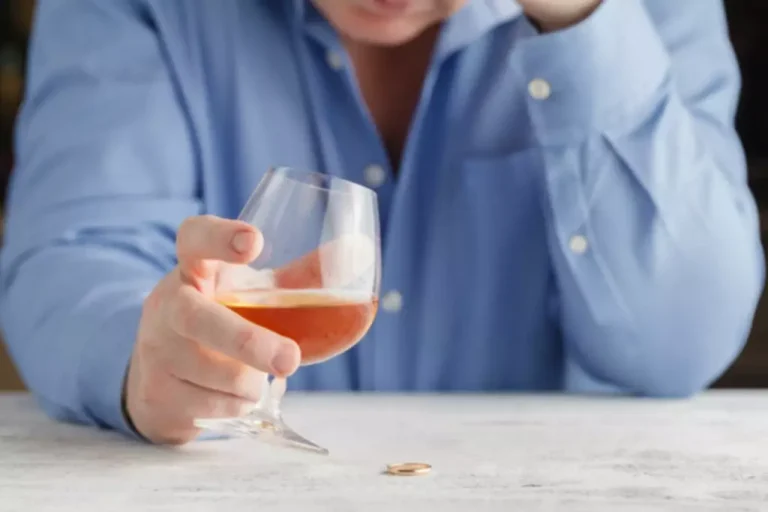
With such a lax approach to alcohol during work hours, it isn’t surprising that alcohol after work has become so commonplace. Regardless of what career you have, there are steps you can take to monitor your after-work drinking. One of the best ways is simply to limit the amount of drinks you have.

Does Alcohol Kill Probiotics?
- It is not unusual to have additional meetings with the employee and to make additional referrals.
- My next company installed an actual bar—complete with a huge vintage mirror and stocked mostly with Jägermeister—inside the office.
- In Western societies, the institutionalization of regular alcohol consumption has been observed in various stages of life.
- If you find yourself regularly drinking to get through the workday, it might be time to reassess your relationship with alcohol and seek support if necessary.
- Sharing drinks after work can facilitate connections with colleagues, serving as a social lubricant that enhances communication and strengthens professional relationships.
- „I suspect winter depression—or boredom—may be playing into it,” said Robin Shea, a partner with Constangy, Brooks, Smith & Prophete in Winston-Salem, N.C.
ADA accommodations might include https://ecosoberhouse.com/ time off to attend Alcoholics Anonymous meetings or other rehabilitation. It is important, Shea said, that the employer not treat the employee who has alcoholism differently from an employee who does not have alcoholism but who shows up to work hung over a few times a year. Hoyman acknowledged that despite these accommodation requirements, there can be a stigma attached to alcoholism that isn’t attached to other ADA-covered conditions.
Alcohol Testing

Management should suggest and encourage social activities with employees over drinking after work. According to the Alcohol.org survey, 10% of bosses don’t mind getting drunk in front of employees, which greatly increases the risk of creating an uncomfortable workplace. De-emphasizing happy hour in favor of other ventures can prove to be beneficial to all involved. Though not altogether a new phenomenon, the incorporation of alcohol in the workplace has become increasingly normalized in some job settings. Some companies openly offer alcohol to employees as a perk and even designate a day of the week for all employees to have a teambuilding or celebratory drink.
Suggest Sober Activities

One of the primary psychological drivers is the desire for stress relief. After a demanding workday, alcohol can offer a temporary escape, providing a sense of relaxation and detachment from workplace pressures. Another significant factor is the role of alcohol in social bonding. Sharing drinks after work can facilitate connections drinking after work with colleagues, serving as a social lubricant that enhances communication and strengthens professional relationships.

And now you know that employers cannot discriminate against you because of your past. In this program, a counselor meets with you and can refer you for addiction treatment. About 3 out of 4 employers say that opioids affect their workplaces. In 2019, about 6% of deaths from workplace injuries were due to opioid overdose on the job. „The employer couldn’t simply chuckle at employee A, who isn’t an alcoholic, for coming to work hung over after a night of binge drinking while disciplining employee B, who is an alcoholic, for doing the same thing,” she said. Equal Employment Opportunity Commission, an alcoholic is a person with a disability and is protected by the Americans with Disabilities Act (ADA) if he or she is qualified to perform the essential functions of a job.
- Once you’re in recovery, your EAP counselor can meet with you and your supervisor to go over your ongoing treatment, job requirements, and if you need work adjustments or close supervision.
- It can also lead to an irregular heartbeat, known as atrial fibrillation, which can further increase the risk of stroke and other cardiovascular complications.
- Despite these risks, the social pressure to participate in after-work drinks is significant.
- As far as the Government as an employer is concerned, an employee’s decision to drink is that individual’s personal business.
- Whether it’s grabbing a pint at the local pub or attending a happy hour event, after-work drinking has become deeply ingrained in our professional culture.
Moreover, repeated binge drinking, defined as consuming multiple drinks in a short timeframe, has been correlated with an increased likelihood of developing prehypertension, a precursor to Twelve-step program full-blown hypertension. This type of drinking behavior can also produce immediate changes in circulation, heightening the risk of cardiovascular disease in otherwise healthy young adults, as outlined by the American College of Cardiology. After-work drinking culture has traditionally been a staple of certain professional environments, serving as a means of socializing, networking, and unwinding after a long day. However, recent trends indicate a shift in attitude towards this practice, with a growing emphasis on health and the impact of alcohol on productivity and workplace relationships.
- It’s about triggering this whole cascade of neurological effects that get worse every time.
- Record all the events that led to sending the employee home, especially if any disciplinary action is necessary.
- Workplaces that encourage drinking marginalize the many Americans—as many as 30 percent—who don’t drink at all for whatever reason.
In Western societies, the institutionalization of regular alcohol consumption has been observed in various stages of life. In the workplace, drinking has often been seen as a means of fostering camaraderie, boosting morale and relieving stress. However, contemporary attitudes are shifting, with increased awareness of health, safety and appropriate behavior leading to a decline in work-related drinking culture.
- Are you looking to establish a peaceful post-work routine that combines engaging activities with relaxing indulgences?
- North Jersey Recovery Center offers several paths to make sure treatment is personalized and effective.
- Activities such as team sports, group dinners, or participating in wellness programs promote healthy interactions while keeping physical and mental well-being in mind.
- Engaging in hobby clubs after work can enrich one’s social life, providing a remedy for loneliness and a platform to build meaningful relationships.
- Absenteeism is estimated to be 4 to 8 times greater among alcoholics and alcohol abusers.
By limiting the amount you drink, especially after work, you can reduce the risk of these short- and long-term effects on your body. If you find yourself struggling to manage your drinking after work, it might be time to seek professional help. If you commit to full sobriety and give your brain time to heal, things do get better.